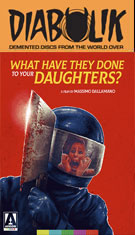
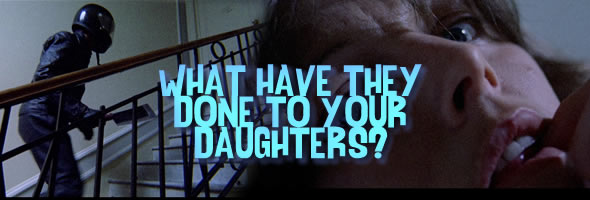


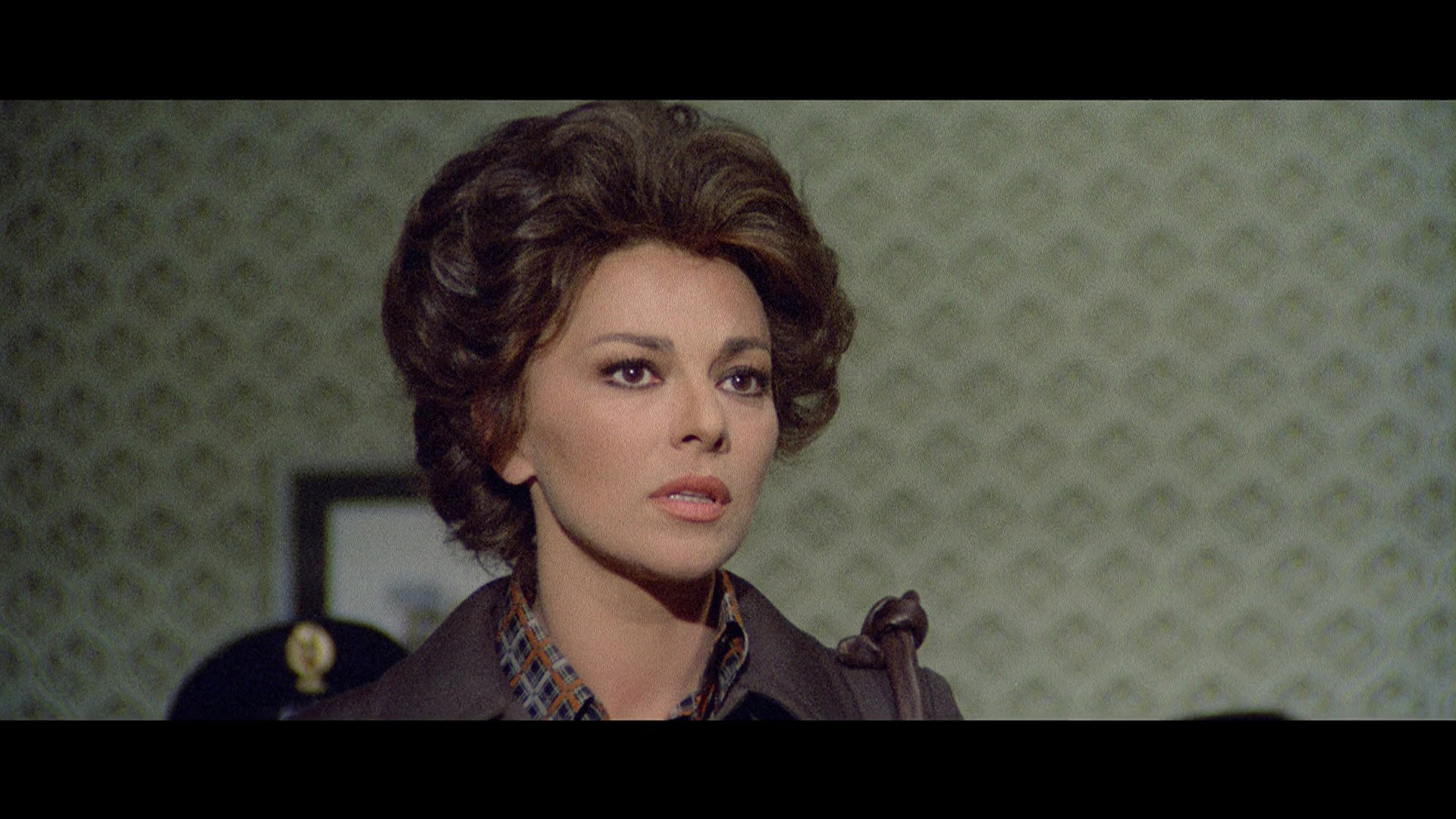 Have They Done to Your Daughters? (originally La polizia chiede aiuto, or The Police Cry for Help) operates primarily
Have They Done to Your Daughters? (originally La polizia chiede aiuto, or The Police Cry for Help) operates primarily 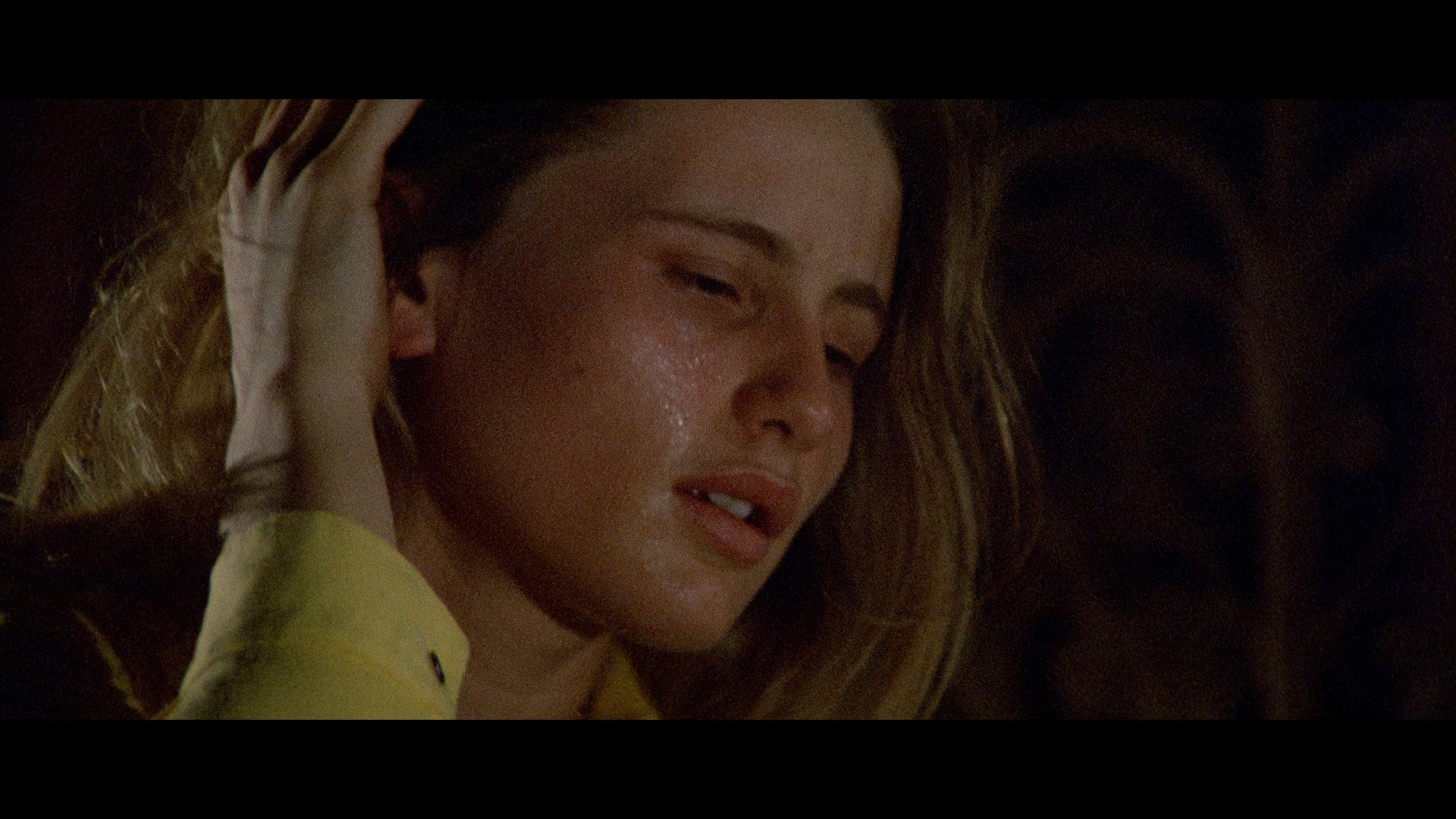 as a police investigation study crossed with the popular giallo formula. While this combination is hardly unique (e.g., the seedy Five Women for a Murderer), Dallamano's film succeeds thanks to the sheer nastiness and forcefulness of its vision.
as a police investigation study crossed with the popular giallo formula. While this combination is hardly unique (e.g., the seedy Five Women for a Murderer), Dallamano's film succeeds thanks to the sheer nastiness and forcefulness of its vision. 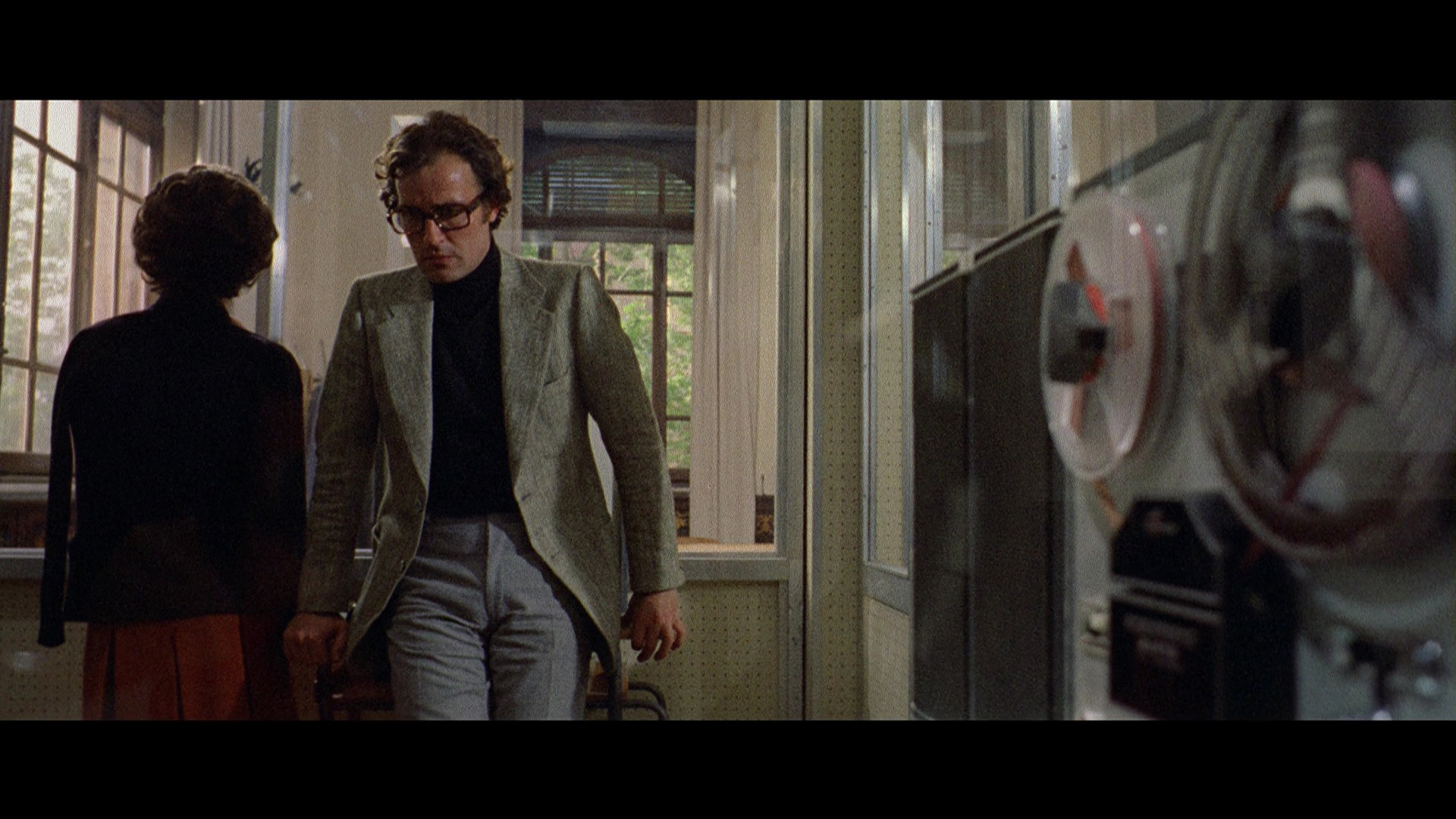 closest to
closest to 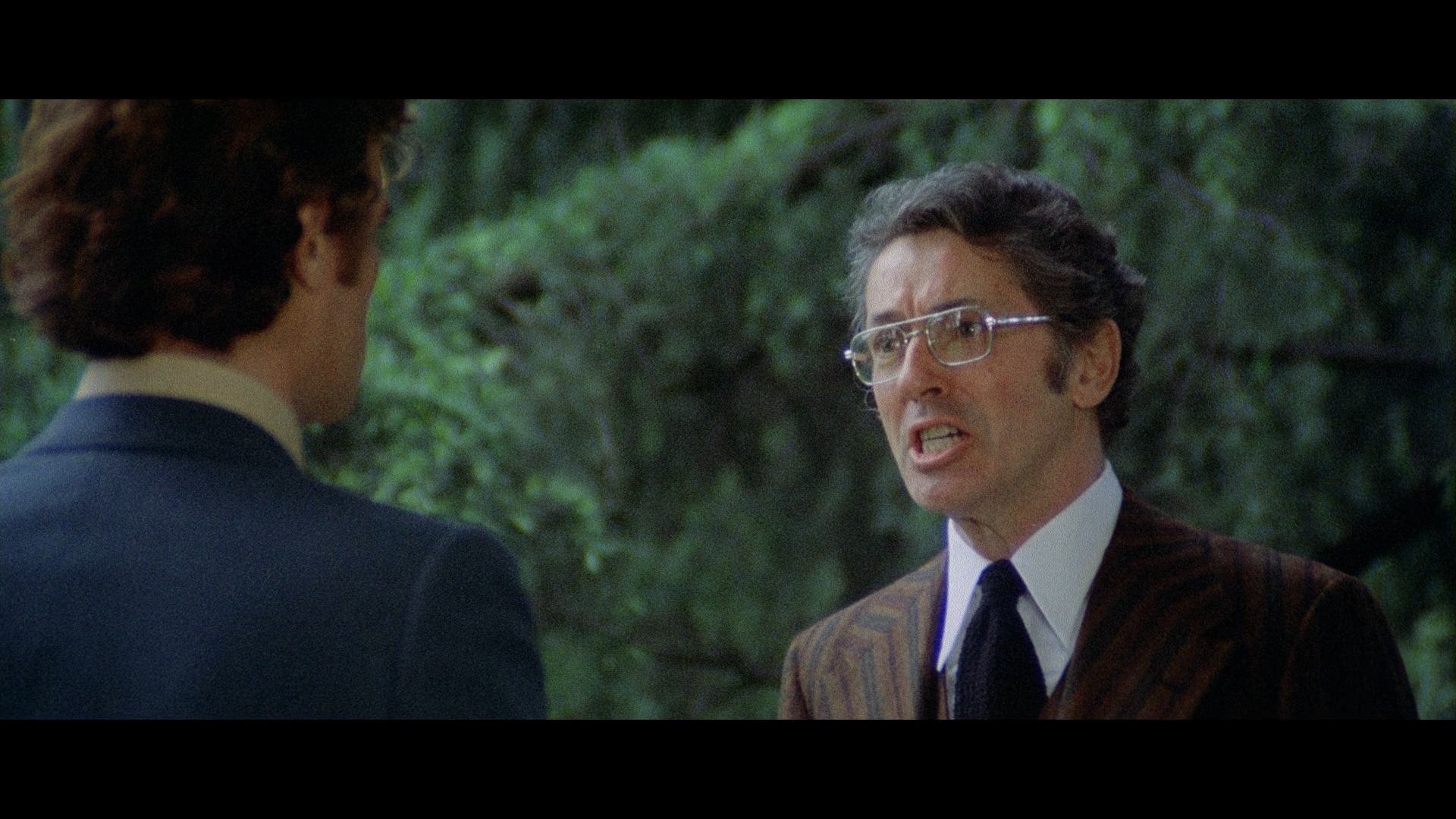 the poliziotteschi with its jaded view of a populace comprised of prey and predators. In between some nonsensical rounds of suspect hunting and interrogations, the high speed killer himself provides all of the highlights. Whether tearing at frightening speed down a corridor or veering through the city streets on his bike, this is one of the more memorable '70s psychos (even if his identity isn't really all that important). One sequence involving his cleaver and a light switch will have jaded gorehounds squealing with glee, while other sordid goodies include multiple stabbings and a nasty morgue inspection of a corpse ("cut up like a side of beef," as the European DVD packaging quote exclaimed). And be sure to look fast for Hitchcock vet Farley Granger (circa So Sweet, So Dead) as a grieving father in two scenes, dubbed by someone else in the English version. The occasionally slack pacing aside, Dallamano really knows how to arrange a set piece, such as Ralli's nocturnal pursuit through a parking deck and into an elevator. Daughters may not be the best place for Italo-sleaze neophytes to begin, but seasoned giallo vets will find it a very entertaining change of pace.
the poliziotteschi with its jaded view of a populace comprised of prey and predators. In between some nonsensical rounds of suspect hunting and interrogations, the high speed killer himself provides all of the highlights. Whether tearing at frightening speed down a corridor or veering through the city streets on his bike, this is one of the more memorable '70s psychos (even if his identity isn't really all that important). One sequence involving his cleaver and a light switch will have jaded gorehounds squealing with glee, while other sordid goodies include multiple stabbings and a nasty morgue inspection of a corpse ("cut up like a side of beef," as the European DVD packaging quote exclaimed). And be sure to look fast for Hitchcock vet Farley Granger (circa So Sweet, So Dead) as a grieving father in two scenes, dubbed by someone else in the English version. The occasionally slack pacing aside, Dallamano really knows how to arrange a set piece, such as Ralli's nocturnal pursuit through a parking deck and into an elevator. Daughters may not be the best place for Italo-sleaze neophytes to begin, but seasoned giallo vets will find it a very entertaining change of pace. 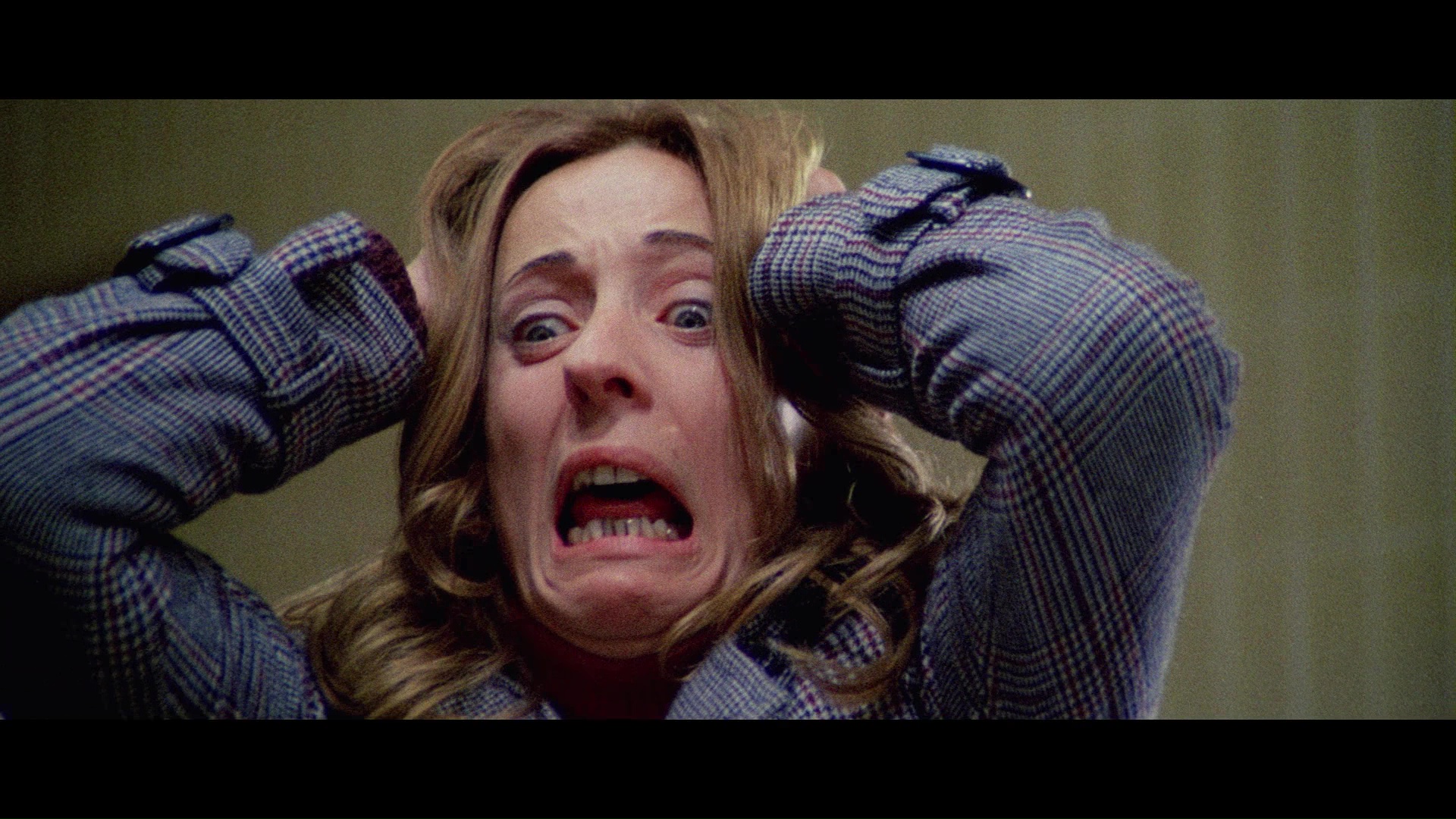 video sleeves, and poster art. Two subsequent releases turned up in 2008, a remastered UK reissue from Shameless and a nicely remastered version from Koch that remains the best SD option.
video sleeves, and poster art. Two subsequent releases turned up in 2008, a remastered UK reissue from Shameless and a nicely remastered version from Koch that remains the best SD option.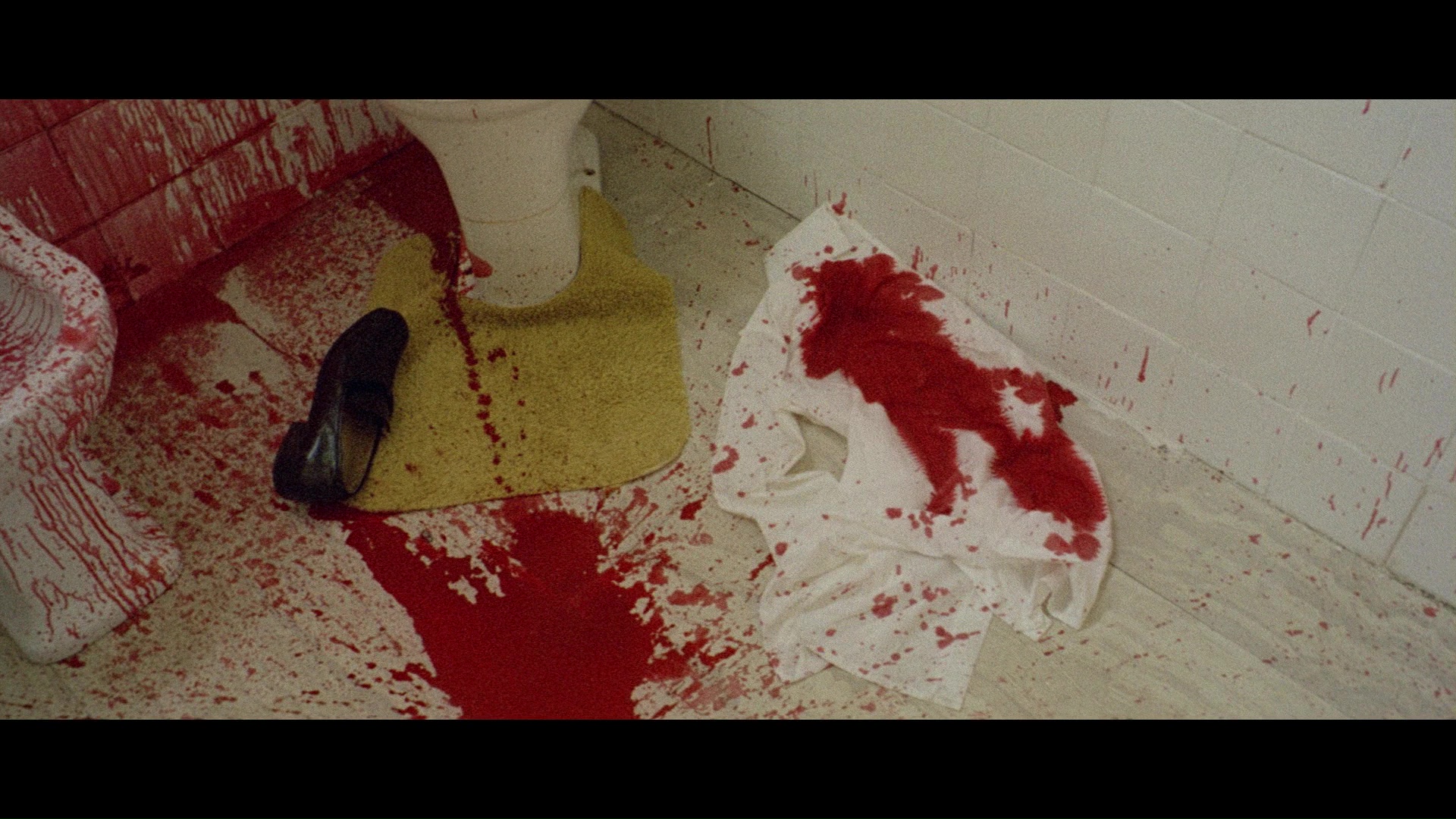
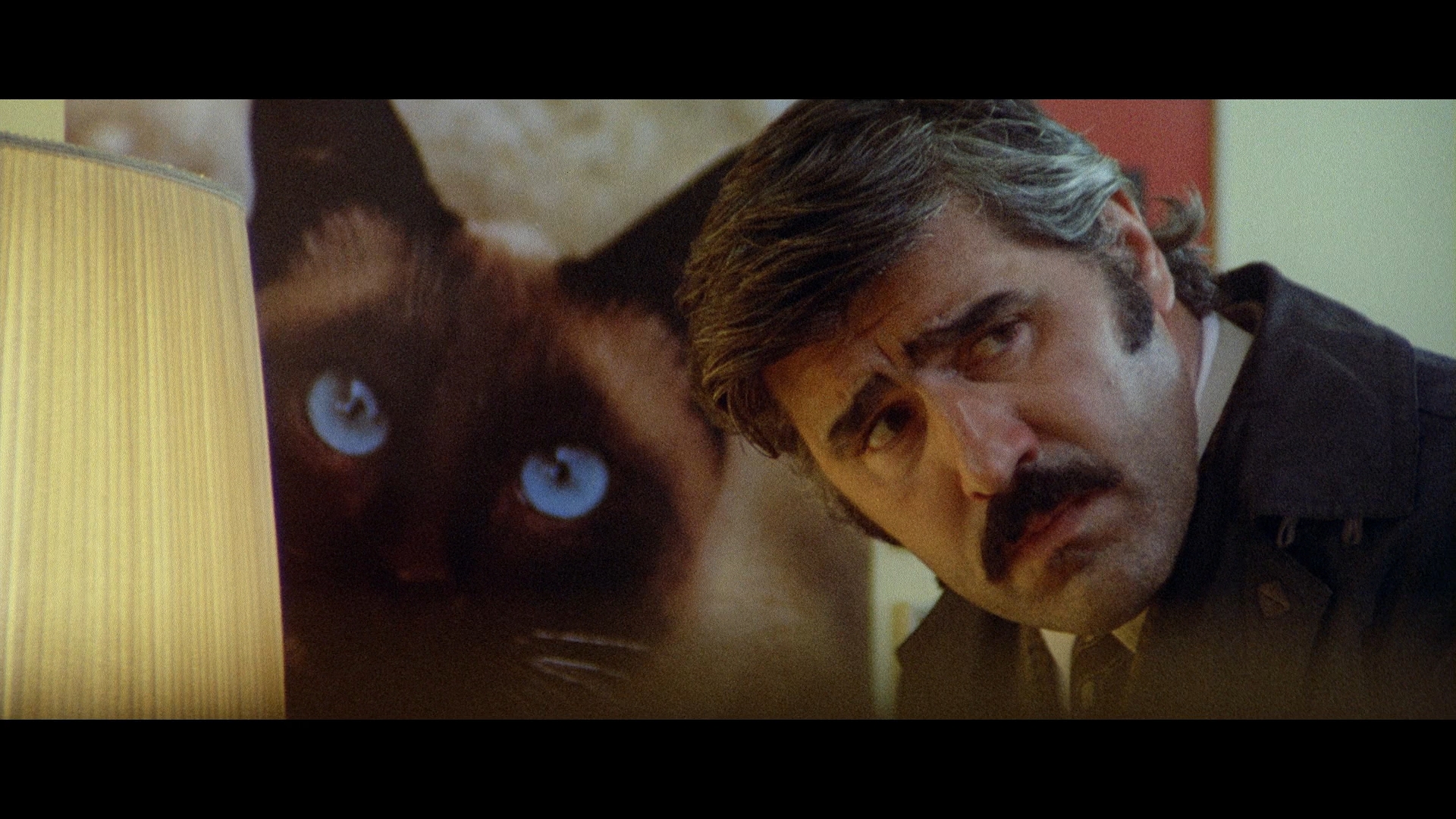 The main video extra here is a real curiosity, a five-minute reel of unused sex footage involving a mostly faceless auburn-haired woman and a chubby old guy (sometimes wearing a freaky Japanese mask with a long nose) performing a variety of sex acts, with a few shots
The main video extra here is a real curiosity, a five-minute reel of unused sex footage involving a mostly faceless auburn-haired woman and a chubby old guy (sometimes wearing a freaky Japanese mask with a long nose) performing a variety of sex acts, with a few shots 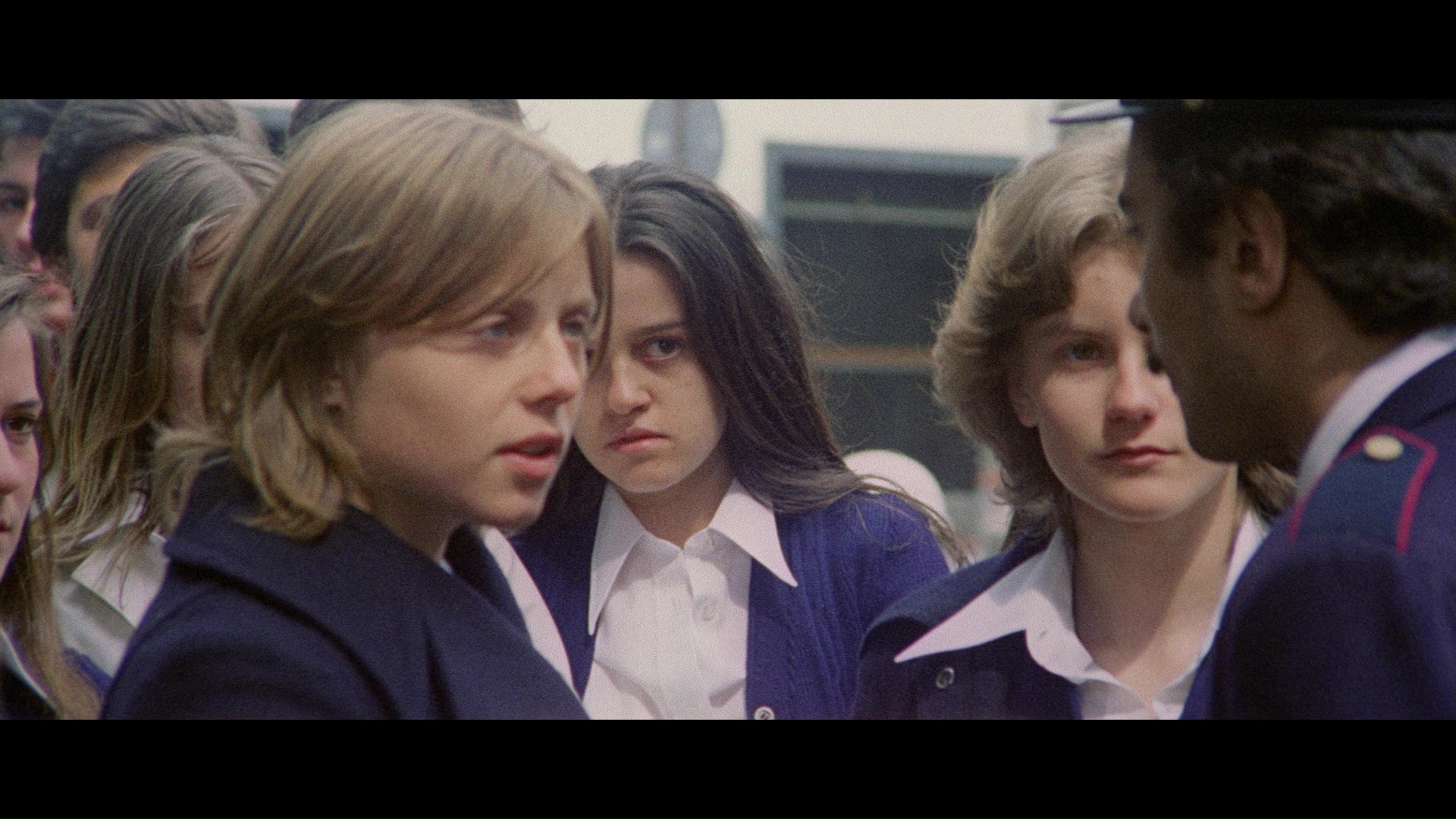 treading into hardcore oral sex territory. Also included on the Blu-ray are English, Italian, and German trailers and a photo gallery. The DVD enclosed kicks off with "Eternal Melody," a 47-minute(!) Freak-o-Rama interview with Cipriani sitting at a piano and covering pretty much his entire musical career ("thanks to soccer") with demonstrations on the keyboard of how he tackles different genres, with a nice focus on his (very prolific) giallo work. It's actually quite lively and enjoyable considering you're looking at one guy at a piano the entire time, albeit with some flashy switching between color and monochrome. Then you get a 21-minute "Dallamano's Touch" interview with editor Antonio Siciliano about his start in the business on spaghetti westerns and his work with the director of this film including such other collaborations as Solange, The Night Child, and Colt 38 Special Squad, citing Morricone and Ortolani as the common frame of reference composers who made it hard to get other composers brought on to his projects. He also disavows any knowledge of the hardcore discarded shots, which were never brought to the editing room, and then sits there watching it while he tries to unravel whether Dallamano directed it. (Apart from one telltale shot, the jury's still out.) The usual slipcase packaging includes a liner notes booklet in German and English featuring a very academic dissection of the film's social commentary by Kai Naumann.
treading into hardcore oral sex territory. Also included on the Blu-ray are English, Italian, and German trailers and a photo gallery. The DVD enclosed kicks off with "Eternal Melody," a 47-minute(!) Freak-o-Rama interview with Cipriani sitting at a piano and covering pretty much his entire musical career ("thanks to soccer") with demonstrations on the keyboard of how he tackles different genres, with a nice focus on his (very prolific) giallo work. It's actually quite lively and enjoyable considering you're looking at one guy at a piano the entire time, albeit with some flashy switching between color and monochrome. Then you get a 21-minute "Dallamano's Touch" interview with editor Antonio Siciliano about his start in the business on spaghetti westerns and his work with the director of this film including such other collaborations as Solange, The Night Child, and Colt 38 Special Squad, citing Morricone and Ortolani as the common frame of reference composers who made it hard to get other composers brought on to his projects. He also disavows any knowledge of the hardcore discarded shots, which were never brought to the editing room, and then sits there watching it while he tries to unravel whether Dallamano directed it. (Apart from one telltale shot, the jury's still out.) The usual slipcase packaging includes a liner notes booklet in German and English featuring a very academic dissection of the film's social commentary by Kai Naumann. 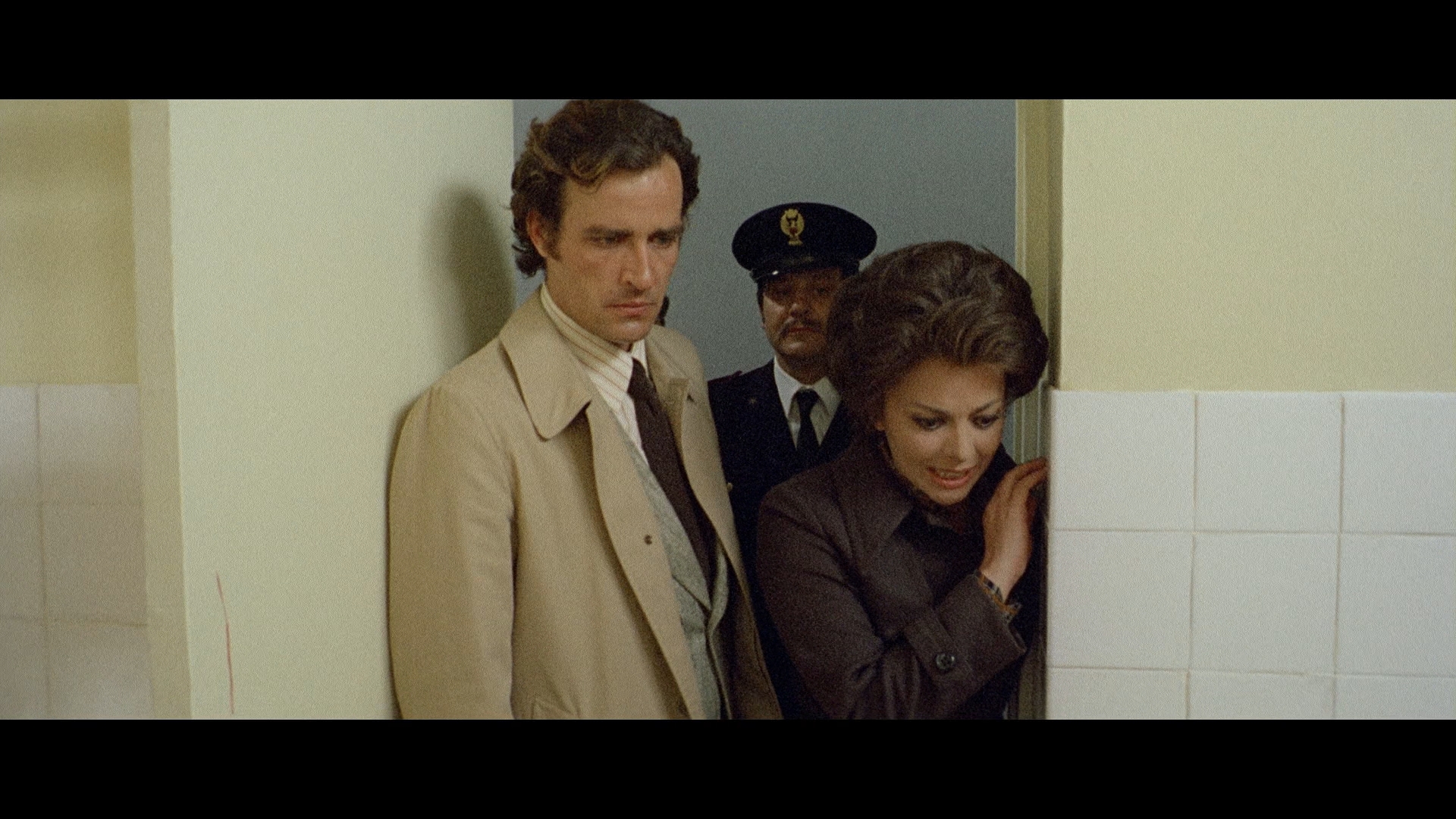 throughout. LPCM mono options are provided in English and Italian with optional English SDH or English-translated subtitles for those respective tracks. The "Eternal Melody," "Dallamano's Touch" and unused sex footage reel are ported over here along with the Italian trailer only (this time with English subtitles), and this time the audio commentary comes from So Deadly, So Perverse: 50 Years of Italian Giallo Films author Troy Howarth, who jumps headfirst into the subgenre mash-up approach, Cipriani's contributions (with some bits pulled from La polizia sta a guardare), the voice performers on the English dub (including Edmund Purdom),
throughout. LPCM mono options are provided in English and Italian with optional English SDH or English-translated subtitles for those respective tracks. The "Eternal Melody," "Dallamano's Touch" and unused sex footage reel are ported over here along with the Italian trailer only (this time with English subtitles), and this time the audio commentary comes from So Deadly, So Perverse: 50 Years of Italian Giallo Films author Troy Howarth, who jumps headfirst into the subgenre mash-up approach, Cipriani's contributions (with some bits pulled from La polizia sta a guardare), the voice performers on the English dub (including Edmund Purdom), 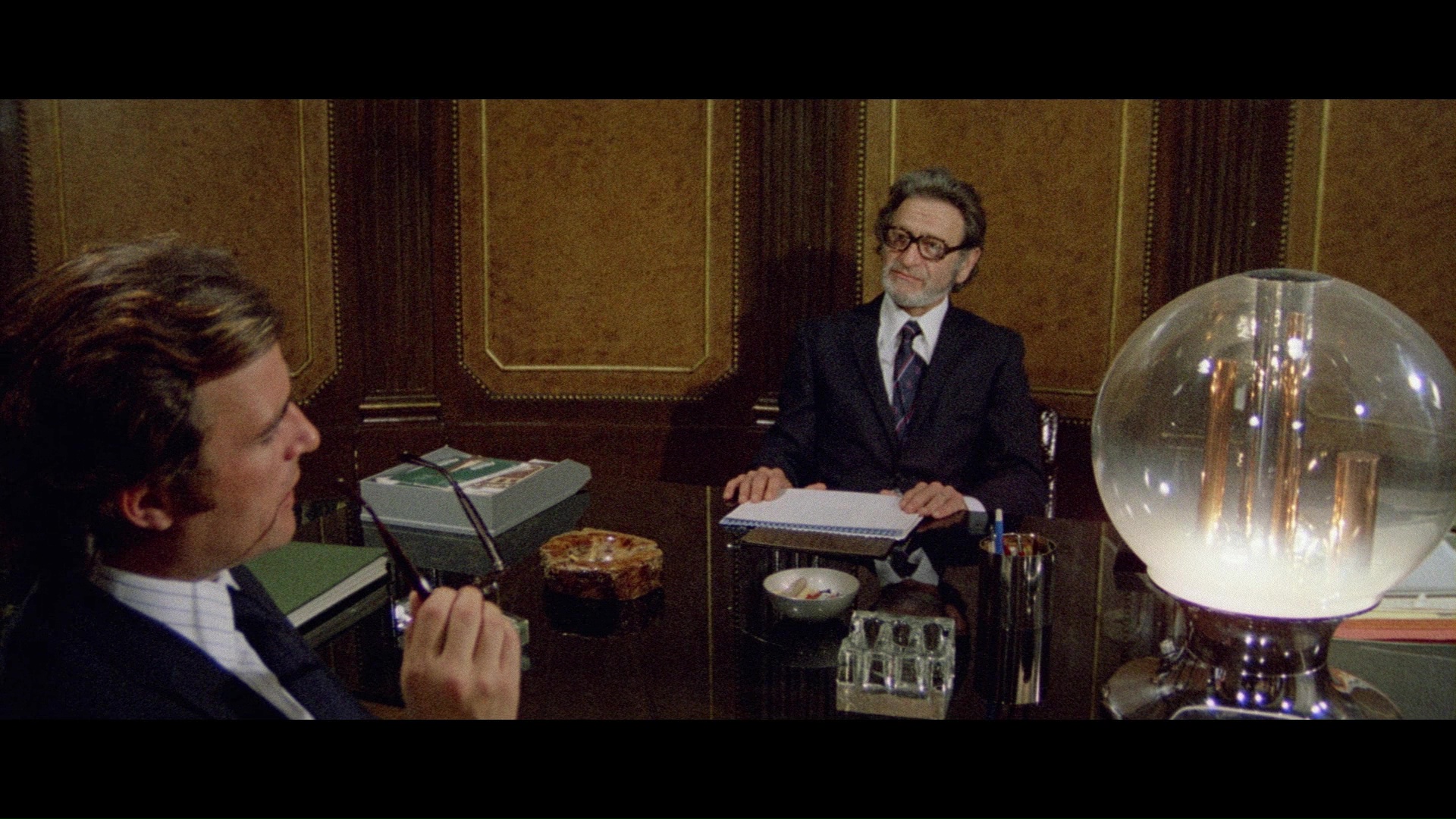 Dallamano's short but vital contributions to the giallo, and tons more. As usual he drops some funny bon mots in as well to make sure you're paying attention, too. Also new here is the visual essay "Masters & Slaves: Power, Corruption and Decadence in the Cinema of Massimo Dallamano" (19m44s) with Diabolique's Kat Ellinger slicing into the director's output with a focus on the gender relations, power plays, and political ramifications weaving through such films as Venus in Furs, The Night Child, Dorian Gray, A Black Veil for Lisa, Solange, and this one, touching on the master-slave dynamic in each. The English main title sequence is also included (in blah SD quality) along with an image gallery of stills and poster art (including the U.S. one as The Coed Murders), while the packaging includes reversible sleeve options (with a new design by Adam Rabalais) and, in the first pressing only, an insert booklet with an essay by Michael Mackenzie.
Dallamano's short but vital contributions to the giallo, and tons more. As usual he drops some funny bon mots in as well to make sure you're paying attention, too. Also new here is the visual essay "Masters & Slaves: Power, Corruption and Decadence in the Cinema of Massimo Dallamano" (19m44s) with Diabolique's Kat Ellinger slicing into the director's output with a focus on the gender relations, power plays, and political ramifications weaving through such films as Venus in Furs, The Night Child, Dorian Gray, A Black Veil for Lisa, Solange, and this one, touching on the master-slave dynamic in each. The English main title sequence is also included (in blah SD quality) along with an image gallery of stills and poster art (including the U.S. one as The Coed Murders), while the packaging includes reversible sleeve options (with a new design by Adam Rabalais) and, in the first pressing only, an insert booklet with an essay by Michael Mackenzie.![]()